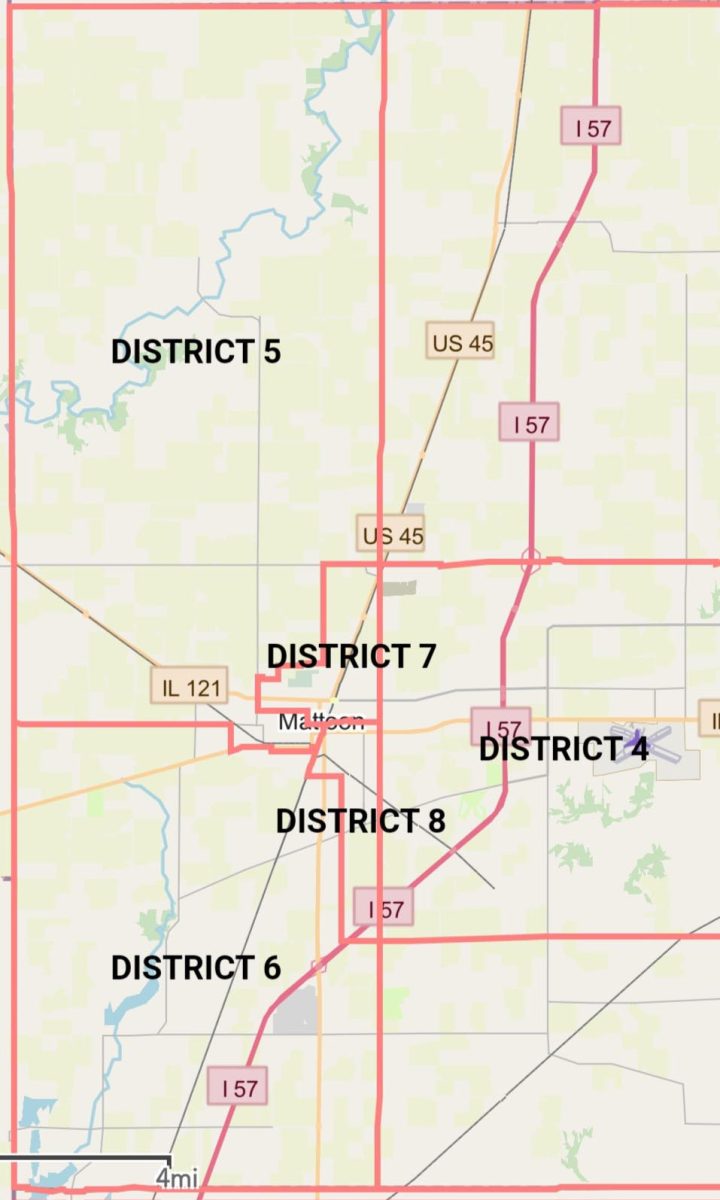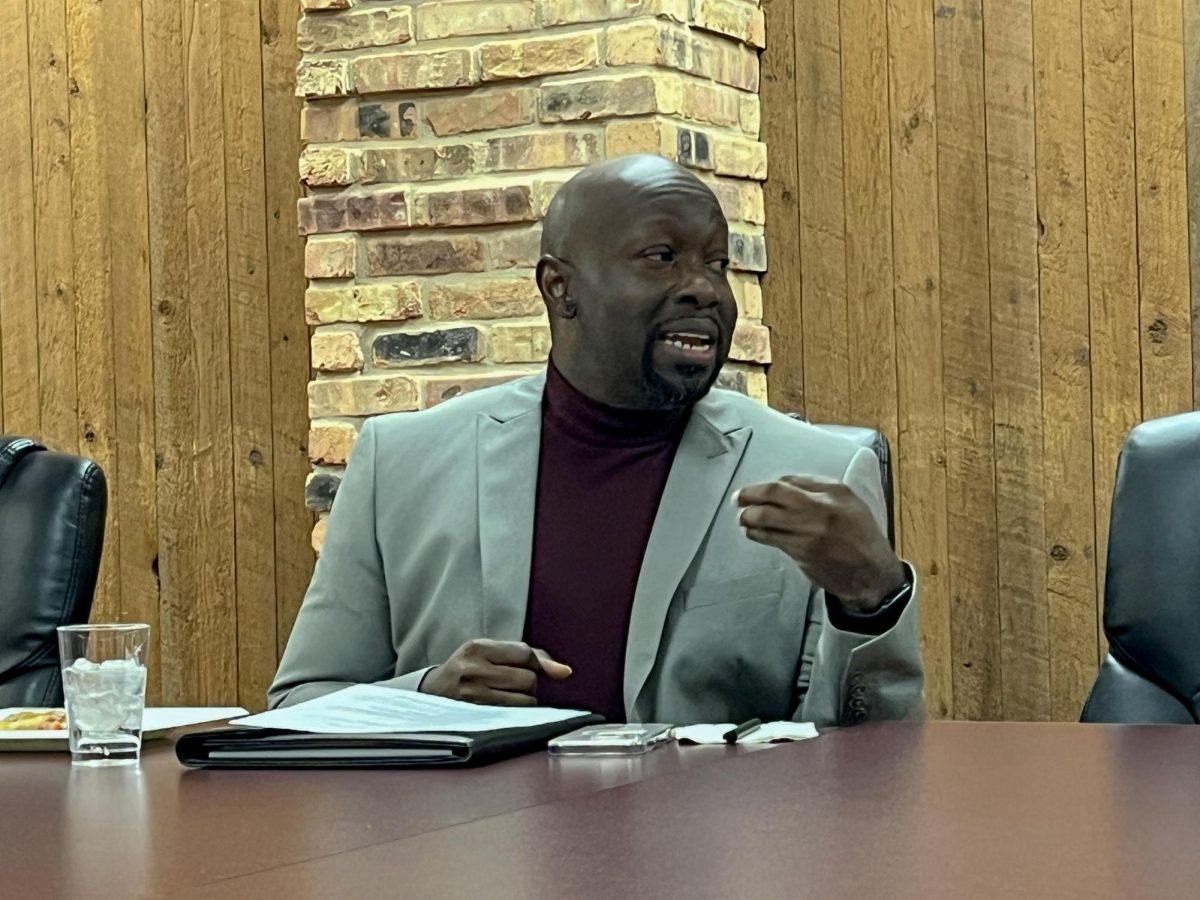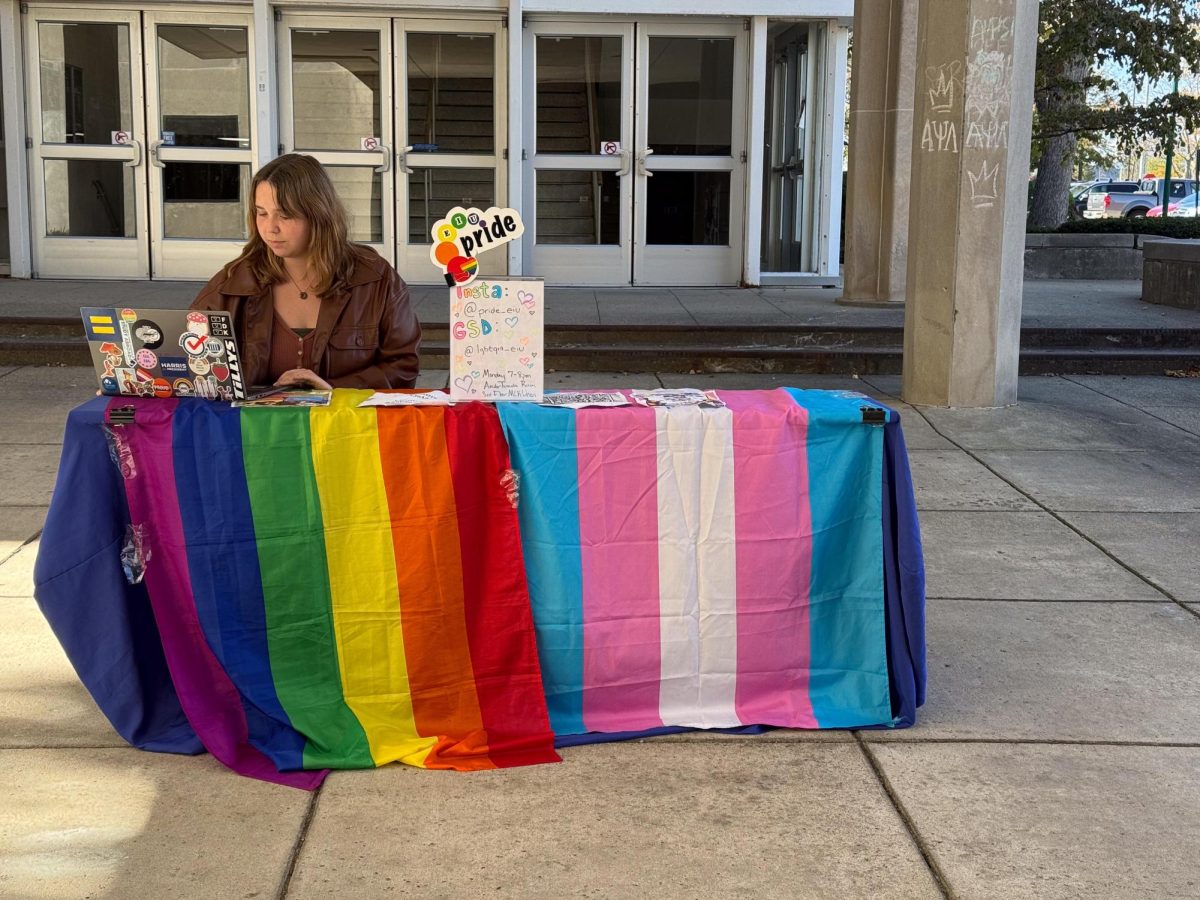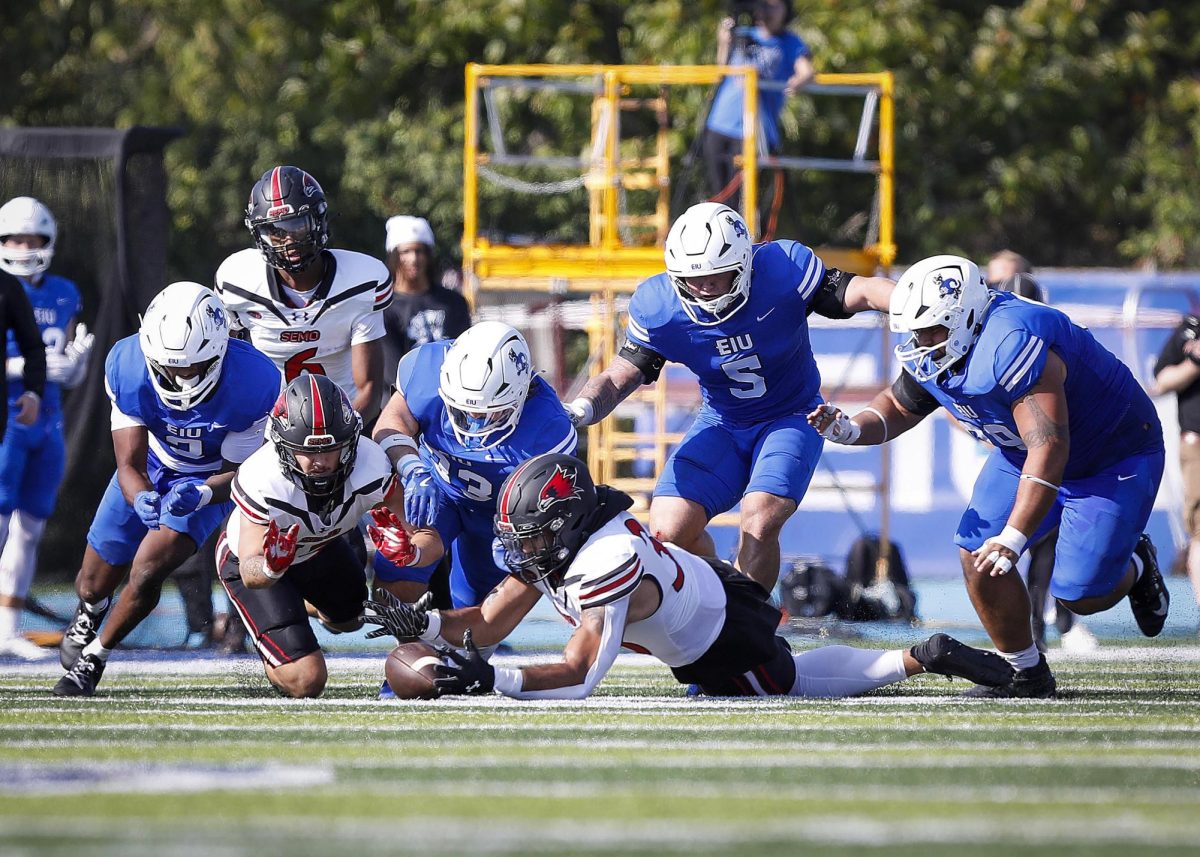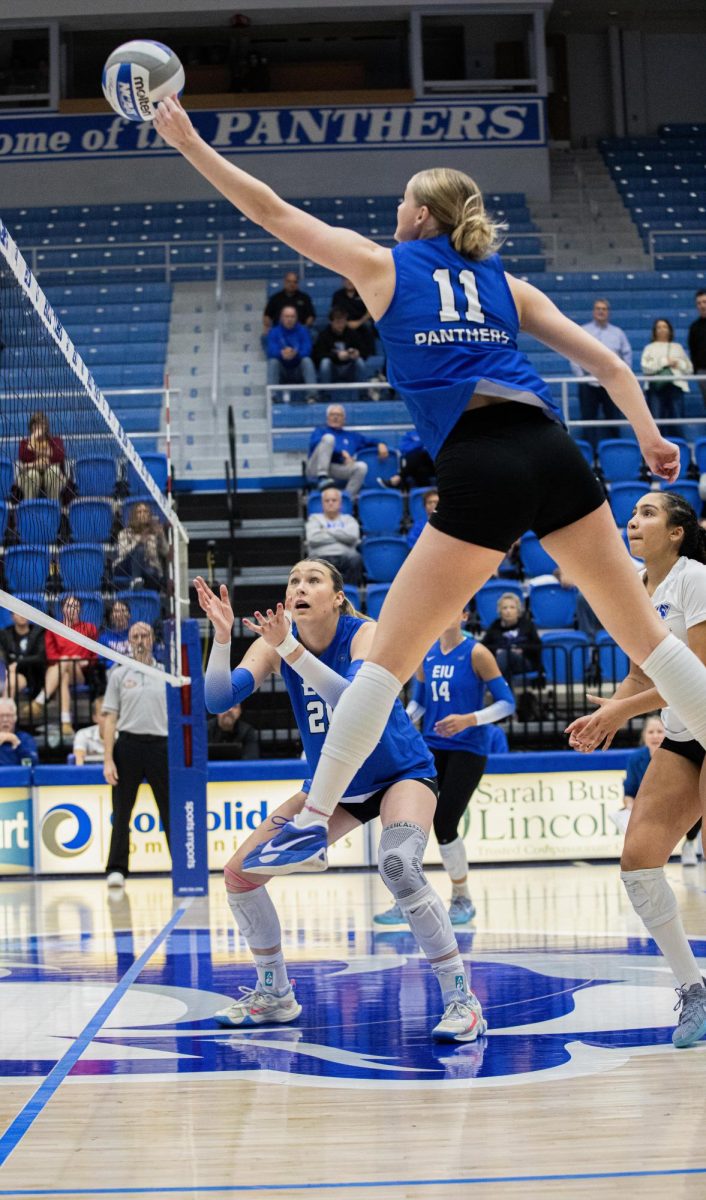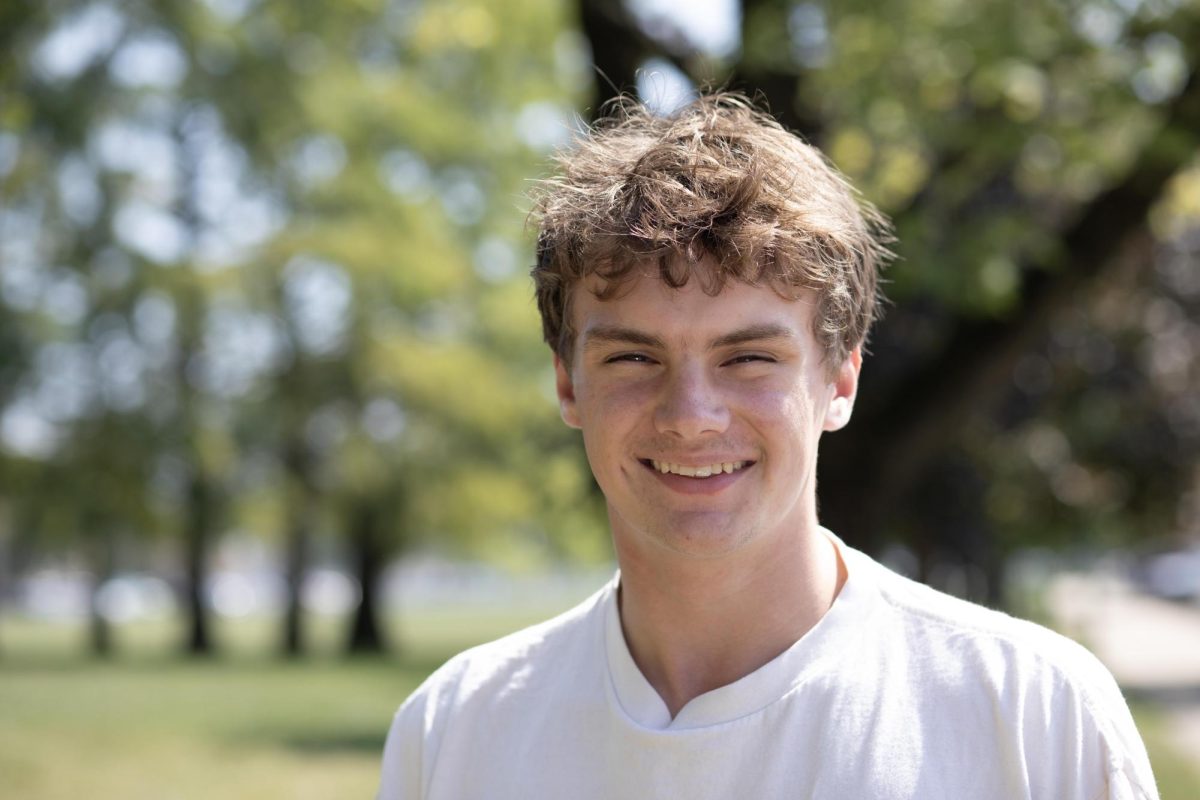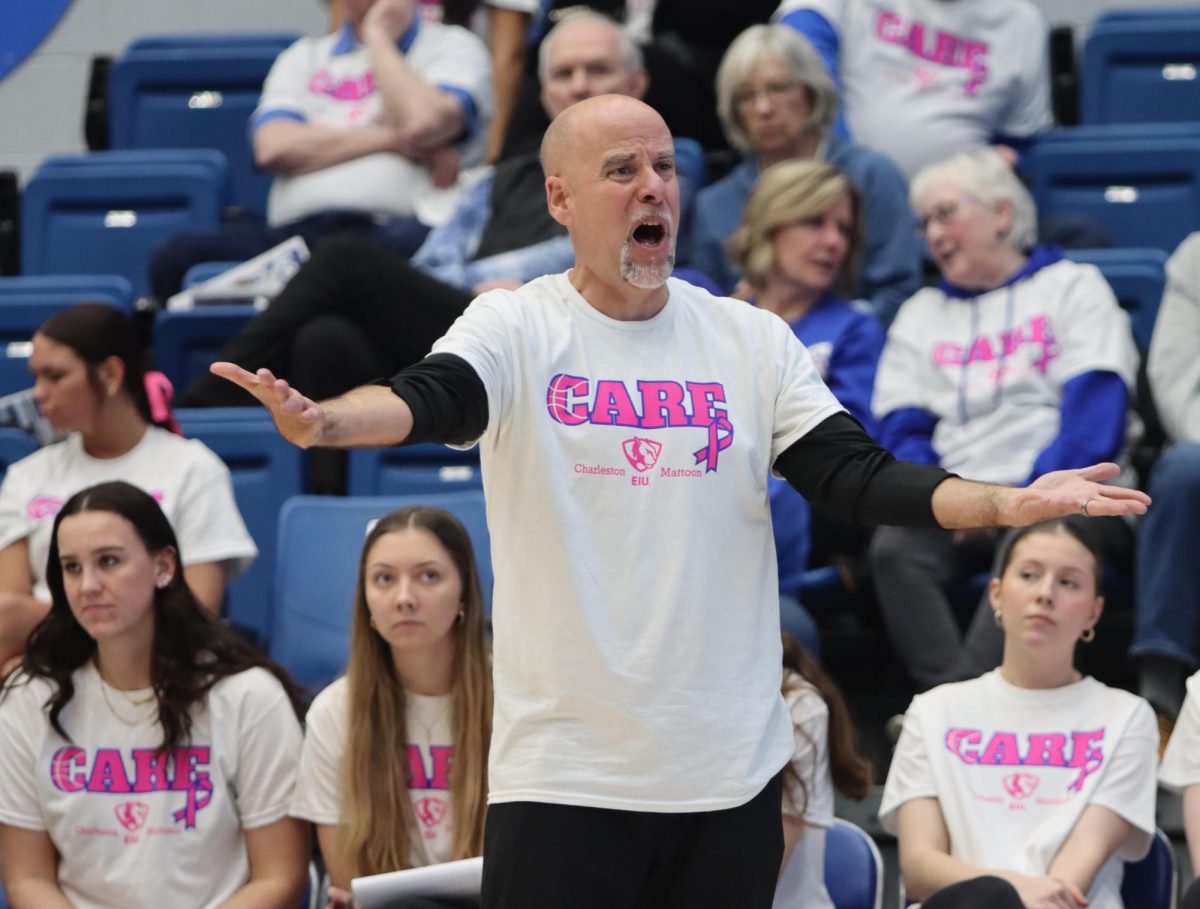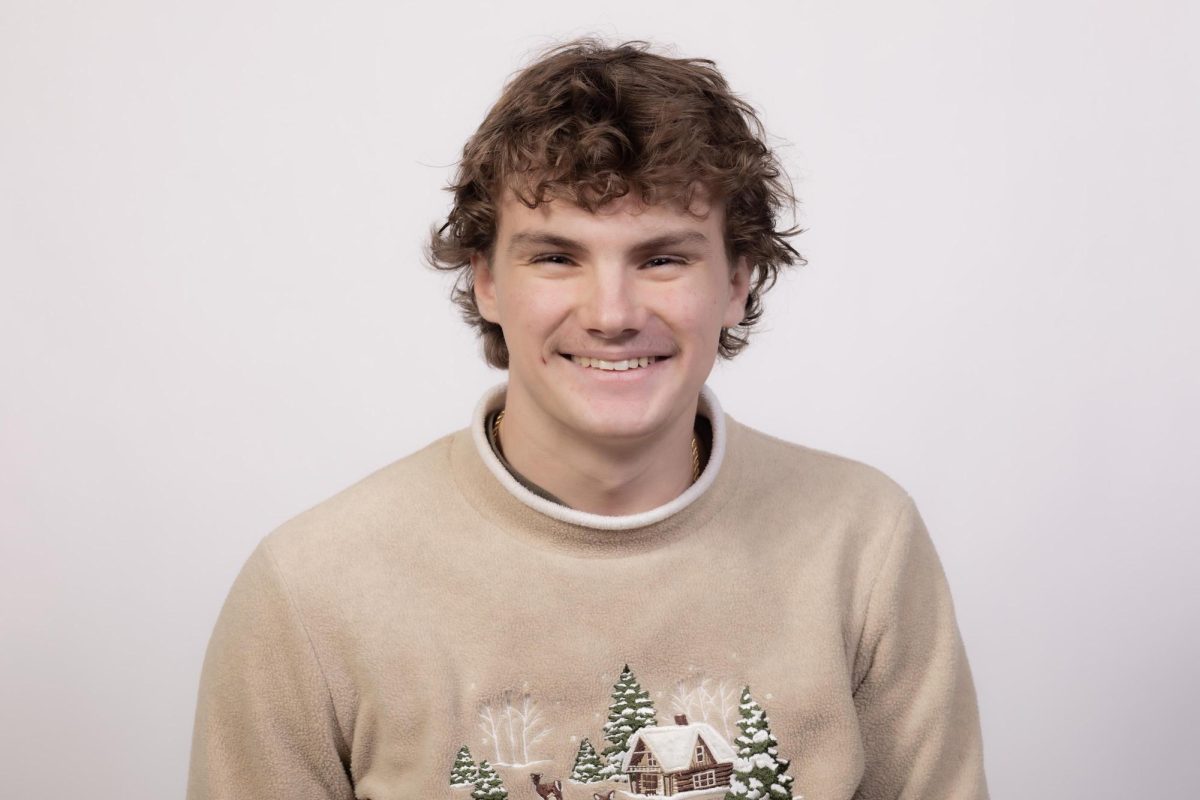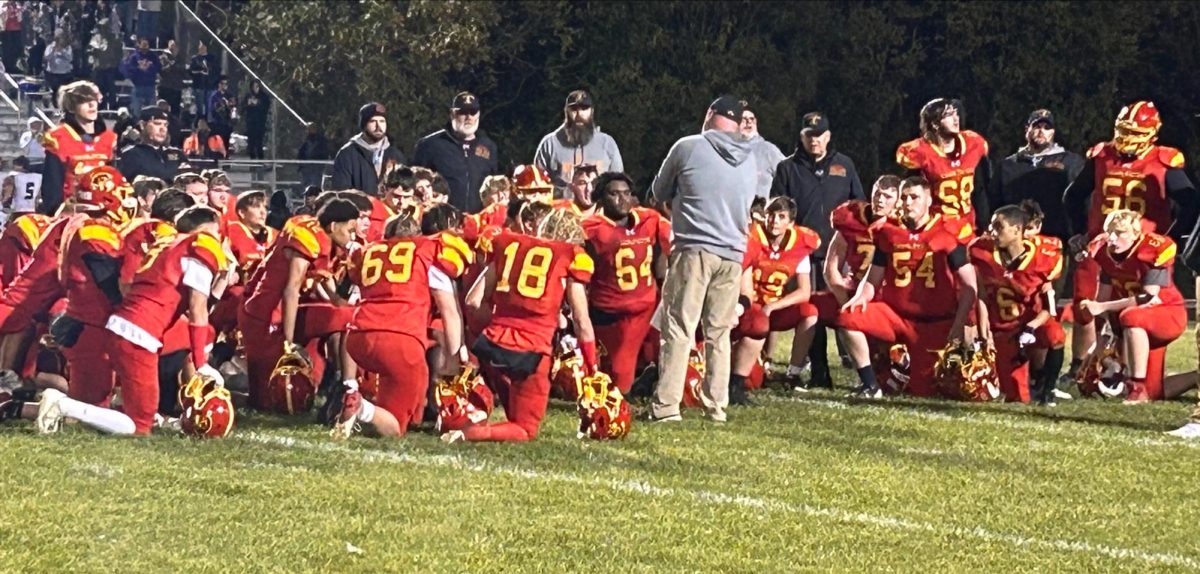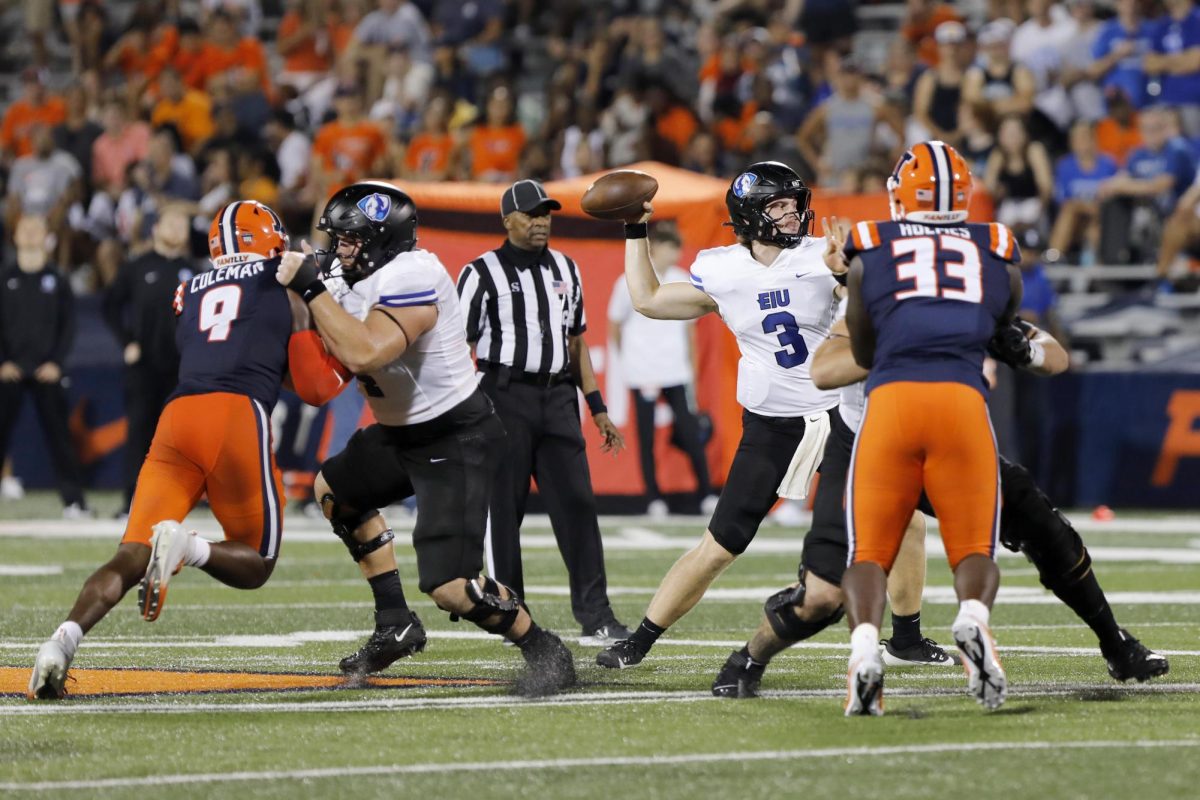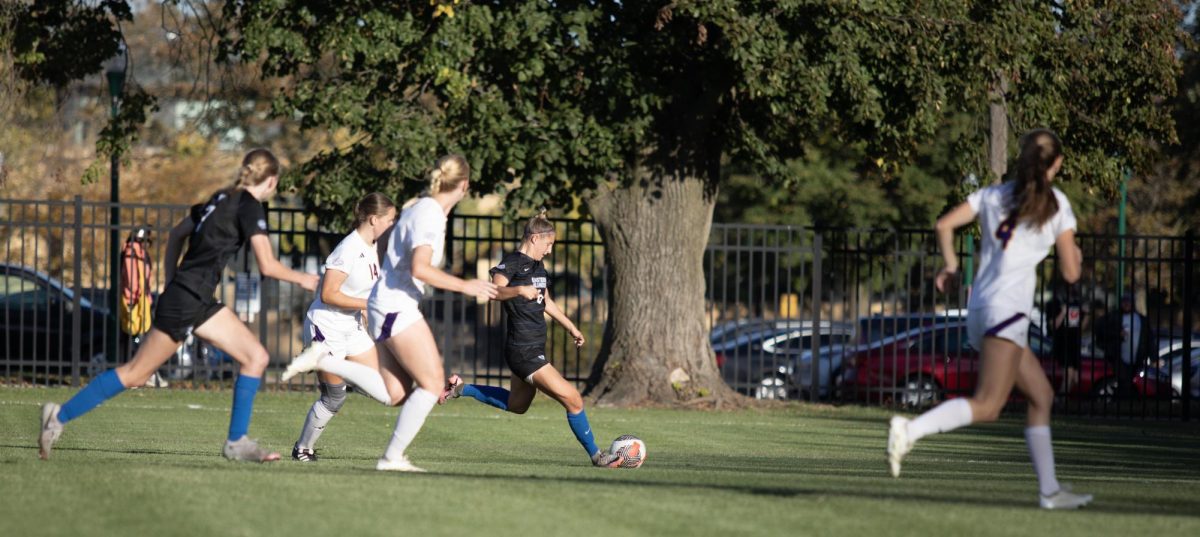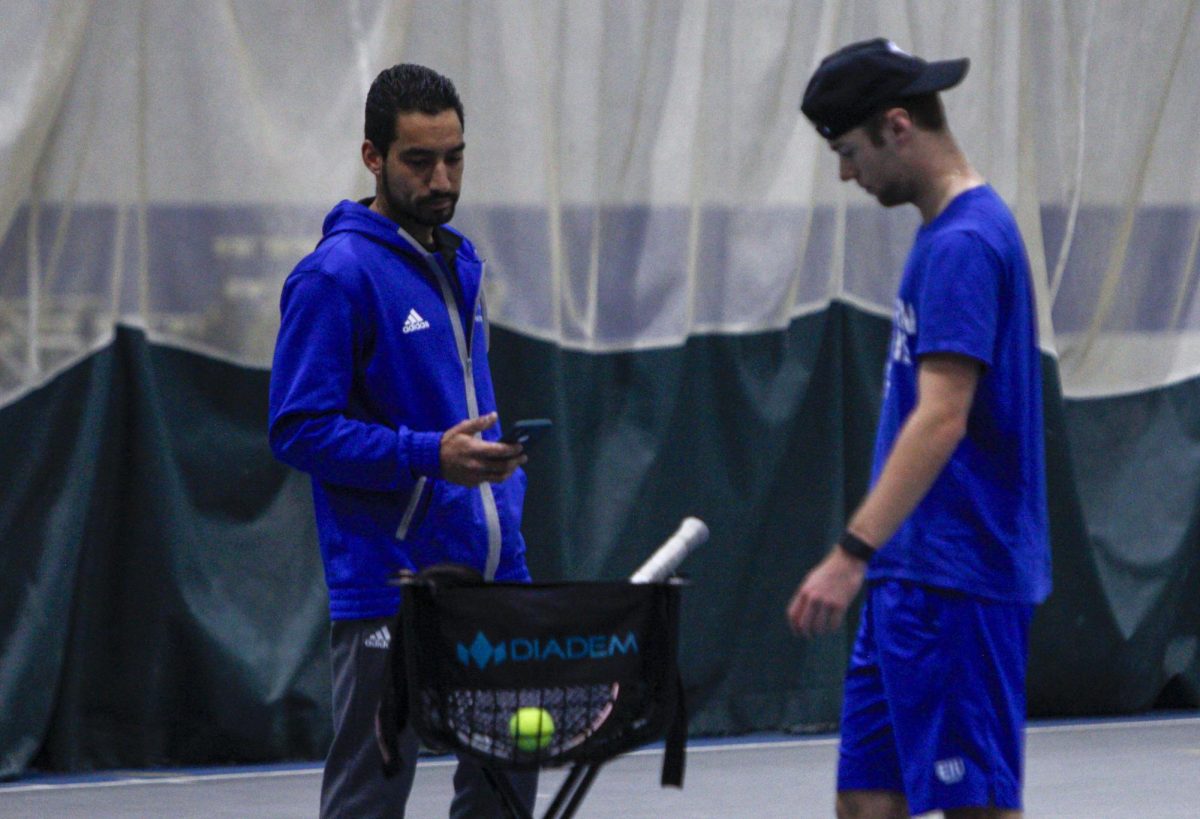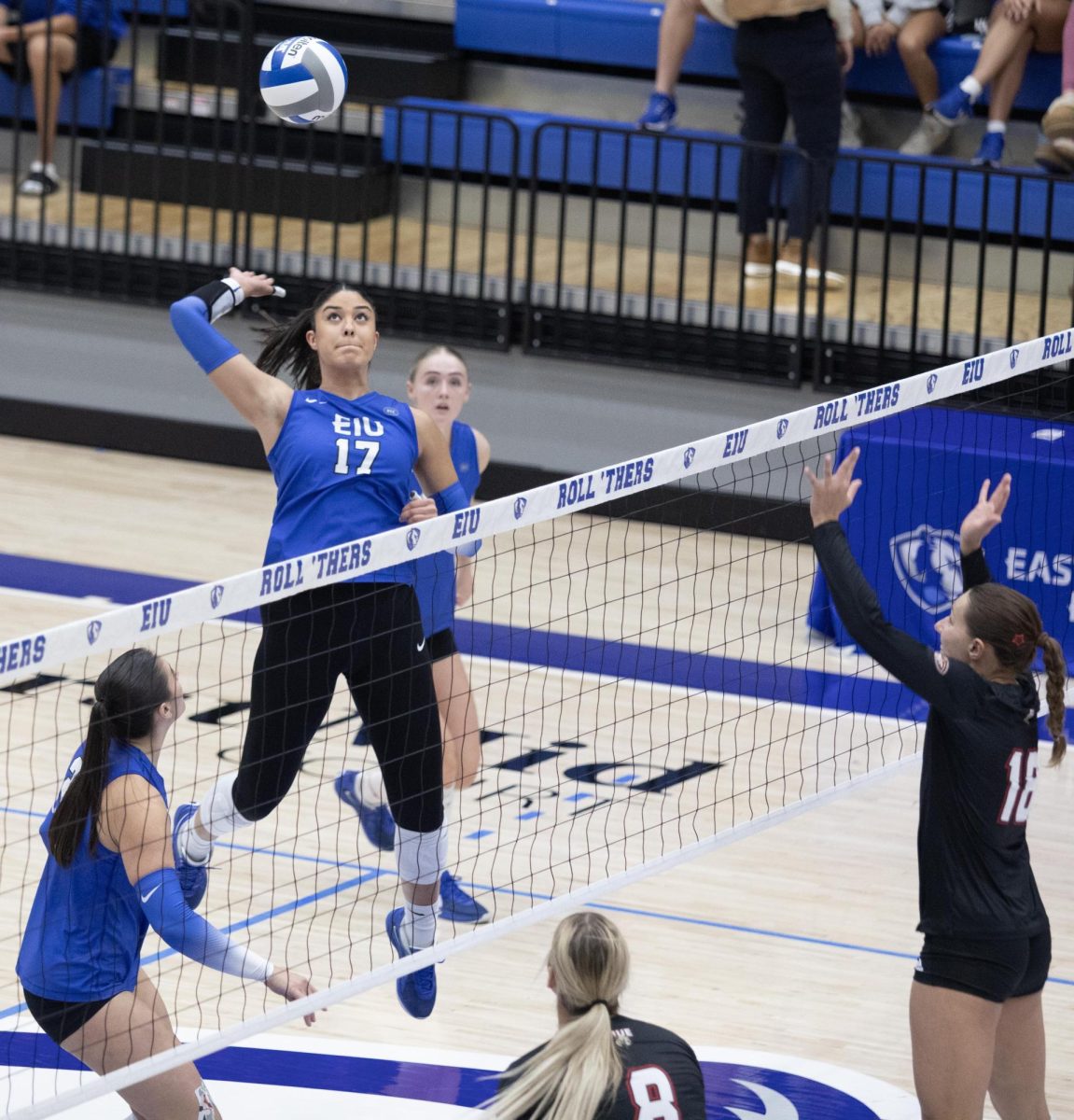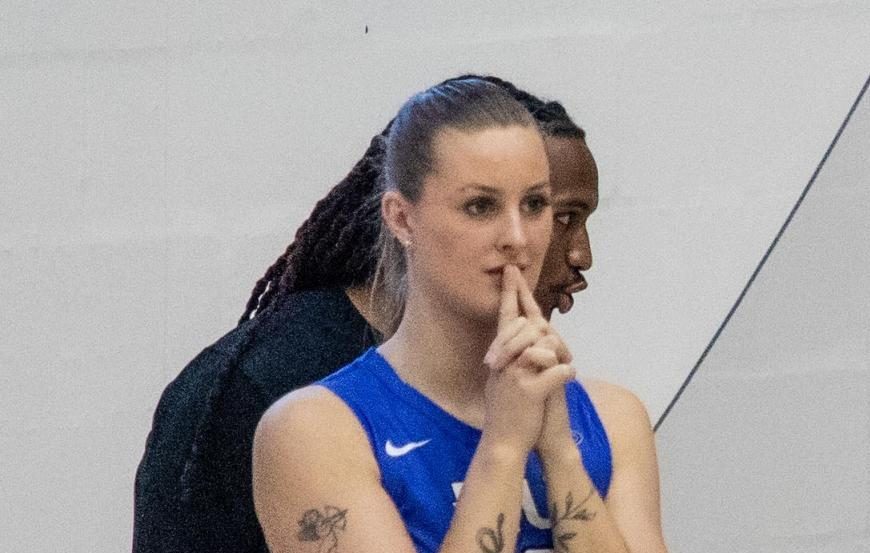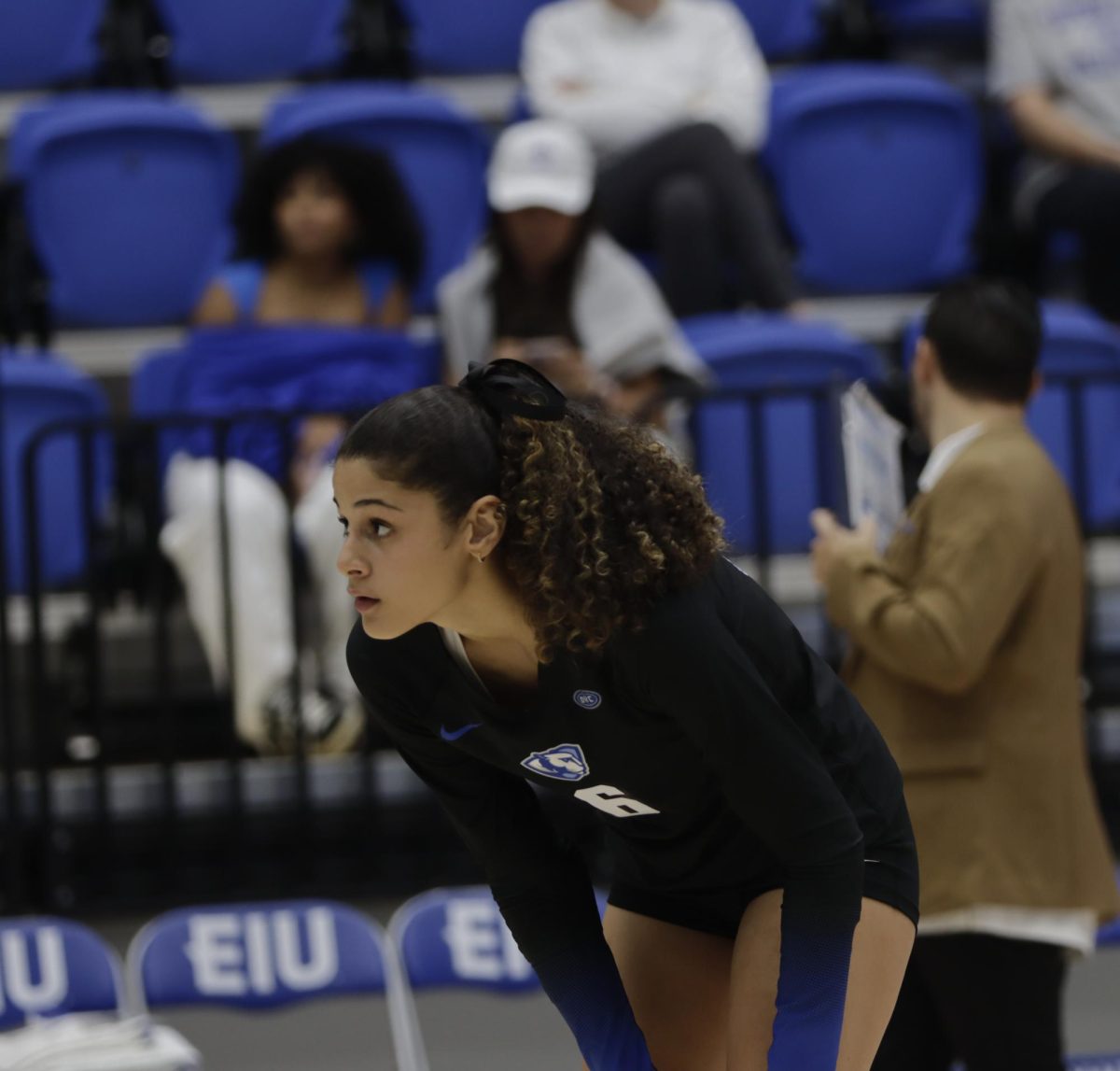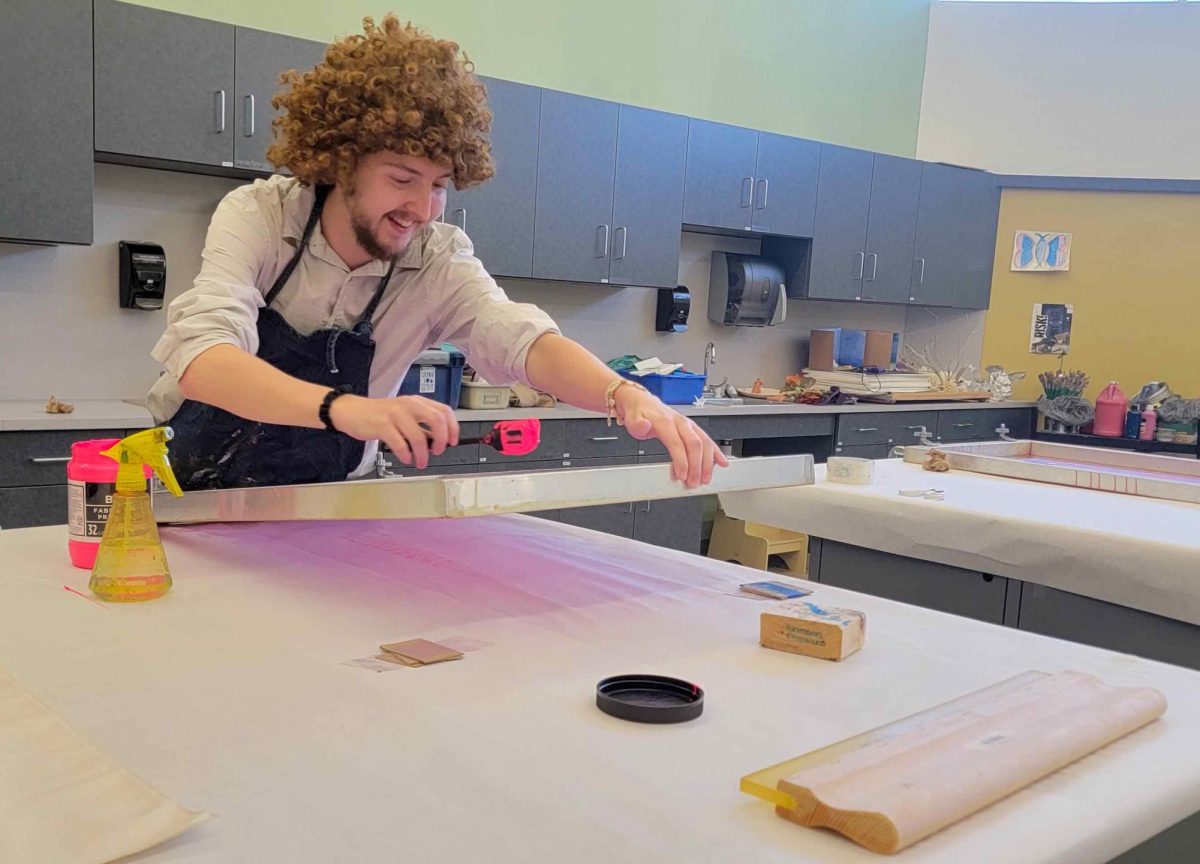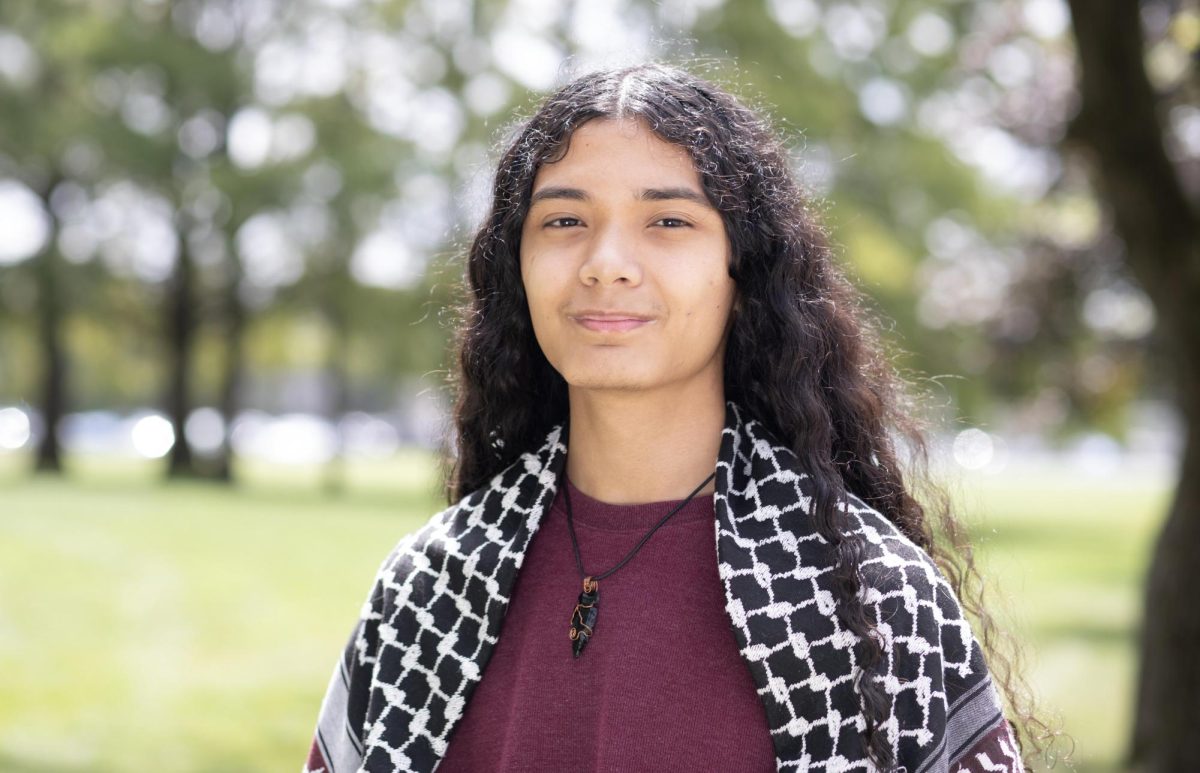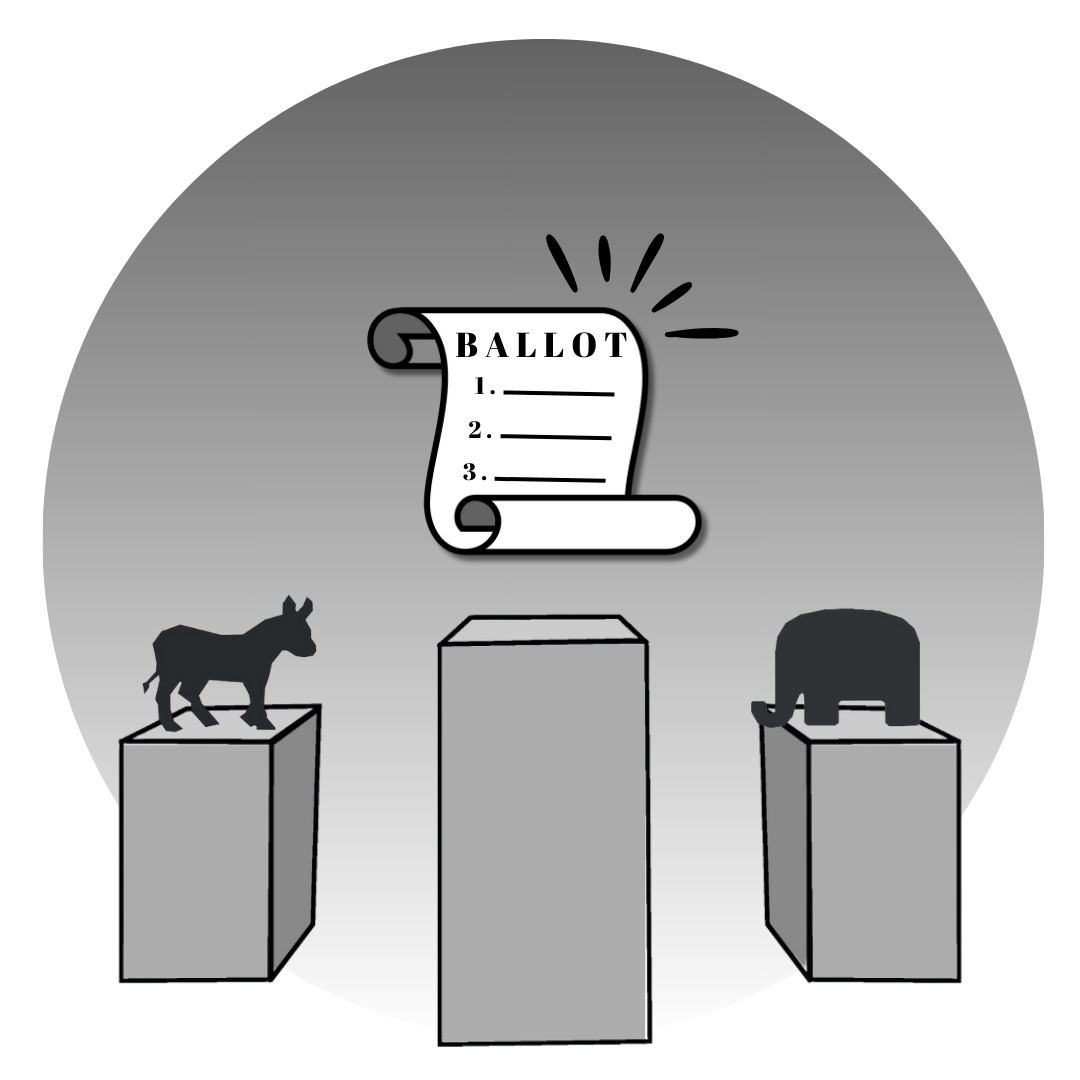Faculty apply for next Eastern president
December 1, 2014
Four faculty members decided to collectively apply to be Eastern’s next president, but are no longer being considered for the position by the presidential search committee.
John Allison and Lucinda Berry, both English professors; Jonathan Blitz, a chemistry professor; and Charles Delman, a mathematics professor, applied as a group.
Allison said the idea began after reading an article about a satirical letter made by a group of faculty members from the University of Alberta in Canada, where they applied for the position of president for their university.
The application from the University of Alberta was meant as a joke to make various points on topics, including the disparity in salary between administration and faculty.
“A lot of groups of four were applying for the position because the rational was ‘we can do groups of four because the president makes four times the salary of a faculty member,’” Blitz said.
He said he decided to share the article with other faculty members after a colleague brought it to his attention.
“We have a faculty union list serve, so I put it up there with a web-link,” Blitz said. “Then (we) had a couple of brave souls that said, ‘yeah, I’m in.’”
Berry said the four of them gathered a few weeks before the fall semester to decide how to proceed with their application.
“We did collaborative writing and talked through and had kind of a disjointed document, created a draft based on that, then came up with a final draft,” Berry said.
Blitz said he did not send out nor read the letter of application the University of Alberta had sent to avoid any influences into their own application.
“Once we started thinking about getting this together, I didn’t want to read too much about what they were doing because I didn’t want that to influence how we were going to think, and I didn’t want to close my mind to other possibilities,” Blitz said.
Allison said while the idea sparked upon reading the article, their mission was not to copy members of the university.
He said they also wanted to make a point in the pay rate gap between faculty and administrators, but it was not their central idea.
Their main purpose was to bring focus to the academic mission of the university.
“We were much more interested in re-purposing the university to attend to the core academic mission,” Allison said. “We don’t want to lose sight of that central mission.”
Berry said the university focuses on academic excellence, and they wanted to bring focus to academics.
“We wanted faculty to really have more of a central role in the mission, because the mission of the college is academics, and that’s what we do,” she said. “The mission is lost a bit in a lot of other functions the university feels it needs to follow.”
They wanted to focus on academics with a goal of having other areas be supportive of the academic mission.
“We advocated working more closely between academic affairs and student affairs to organize student events that are in greater numbers, academically and culturally, educational,” Allison said.
Allison said they also wanted to bring awareness to their cooperative model.
“One (point) is an alternative to the corporate model, (and) that faculty members have background experience and talents that could enable them to do the job,” Allison said. “We wanted people to consider a model of leading the university.”
Blitz said the corporate model is a system of hierarchy in which decisions are made directly from the top to bottom, with little consultation.
“We will reach better conclusions as a result of that consultative process, not only amongst ourselves, but also among other constituencies on campus,” Blitz said.
Allison said the corporate model has a lack of shared governance, but it is part of a culture that has existed for a long time.
“It just seems like the university should be something different from that, where there isn’t such a sense of competitive business-oriented idea, (something) that it is more ‘let’s work together,’” Berry said.
Delman said the difference between their cooperative model and the corporate model is in attitude.
“The corporate attitude seems to be ‘here’s my vision, I’m the leader,’ and it sort of goes down the chain of command,” Delman said. “Our attitude would be ‘what do you think?’ and if we have an idea about how to do something or a decision we want to make, and someone thinks it’s a bad idea, we want you to challenge us. Tell me and let’s do this together.”
While the group went through an interview process, they were later informed by the search committee that they were no longer being considered for the position.
However, Allison said they were pleased with the process.
“We were pleased that someone made a decision to talk with us, and especially pleased that we had an opportunity to convey some of our ideas,” Allison said. “We were treated with the utmost courtesy and respect.”
Blitz said the outcome did not come as a disappointment.
“We had no illusions that we would be taken very seriously,” he said.
The group also pointed out a couple of issues they wanted to make people aware of.
Blitz said according to a report, Eastern had a disproportioned staff to faculty ratio.
“We have about twice as many management people; as teachers retire, teachers are not being replaced, but the management is staying the same,” Blitz said.
He said one of the main issues is the subsidizing in athletics.
“We subsidize the athletics department about $8.8 million a year; compare that with other state schools, we are subsidizing the most,” Blitz said. “We have two thirds of the number of students that Western and SIU-E have and we are subsidizing (the athletic department) even more than those two schools.”
According to data reports, Western subsidizes $8.2 million, while Southern Illinois University Edwardsville subsidizes $6.2 million.
Delman said part of the reason universities subsidize in athletics is because athletes are more likely to later donate to the university, since they typically feel an attachment to the school.
Delman said he would like to see students come together as a learning community.
“How about let’s organize our residence hall to go to a concert in Doudna and arrange for them to give us free tickets,” Delman said. “Then get together and talk about it.”
Allison said a compromise should be made to make better use of the money.
“If a different consensus is reaches around campus, (the money) could be devoted to other things having to do with academic life,” he said.
Allison said using consultants to help make decisions in institutions is unnecessary.
“We should be able to look around and figure out what decisions to make, (and) not place the responsibility on external consultants,” he said. “This is not to say external consultants are always bad.”
Berry said the university should prioritize and make better use of resources, such as cutting spending on technology since many people do not make use of it.
Allison said if the group had continued in the process their experience would have allowed them to lead the university.
“We have had a lot of experience in addressing and mobilizing large groups in our capacity as chief negotiators and chapter presidents,” Allison said.
Blitz said coming together to make decisions would not have been an issue.
“We had differences in this application process and we worked it out; at times I expect it would have been challenging, but this is what people do, they work things out,” Blitz said.
Berry said in terms of making decisions for the university, they would talk things out the same way they did during their application process.
“We used the college education that we all have, that taught us how to reason and argue on a logical basis and not take things personally,” Berry said
Berry said their years working at Eastern allowed them to be more familiar with campus.
“I think we are pretty up to speed about the campus, because it’s our campus,” Berry said.
Delman said having one individual running an institution is a myth.
“It’s a myth that someone has to be in charge, to some extent someone has to take responsibility at some point, but a reasonably sized group of people don’t need to have one person designated to determine what we do,” he said. “We talk about it and figure out what we all feel comfortable to do.”
Berry said a good president for the university must be a good listener, while Allison said they should be willing to make decisions after consultation and be able to hold responsibility for those decisions.
The group wanted to share with the search committee views they believe are important and beneficial for the university.
“We can’t speak for other faculty. I say most of the colleagues that I have talked to have a very similar view about things,” Blitz said.
Allison said the group is satisfied with the process and looks forward to see what the search will result in.
“What we look forward to is a successful search,” he said.
Debby Hernandez can be reached at 581-2812 or dhernandez5@eiu.edu.


